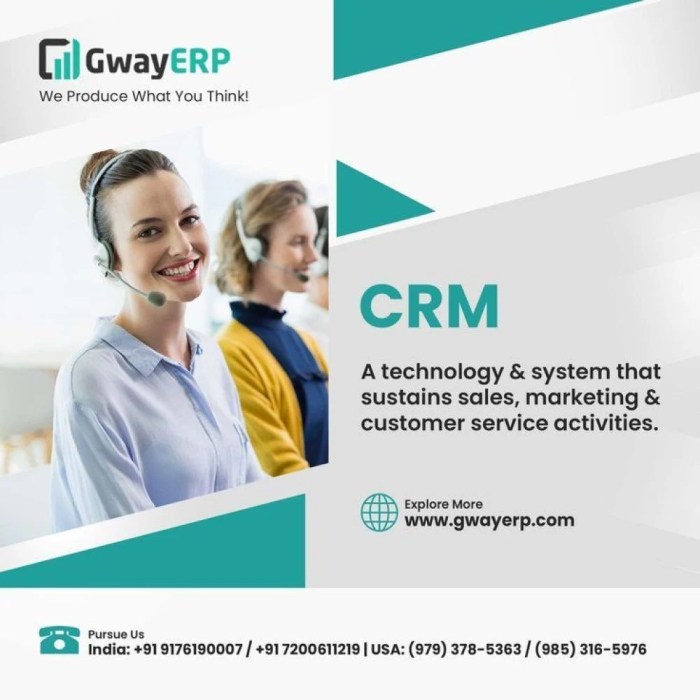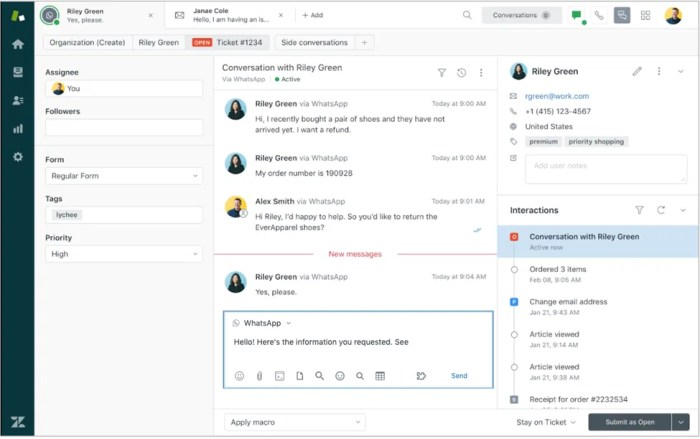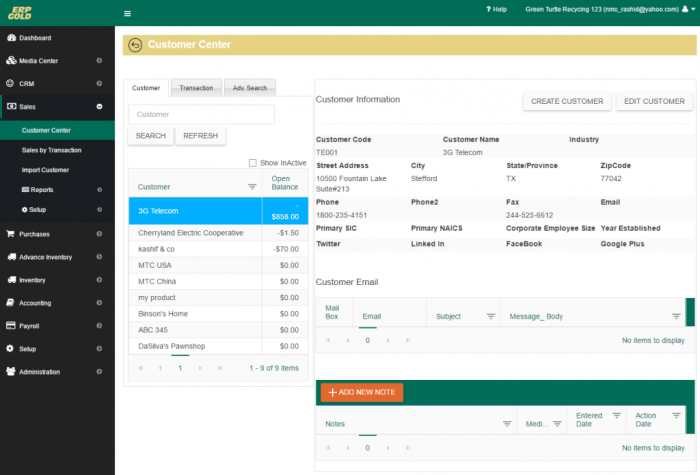Crm software for service business – In today’s competitive landscape, providing exceptional customer service is paramount for the success of any service business. A robust Customer Relationship Management (CRM) system is no longer a luxury but a necessity. This comprehensive guide delves into the world of CRM software specifically designed for service businesses, exploring its benefits, key features, selection process, and implementation strategies. We’ll cover various CRM types, integration possibilities, and address common concerns to help you make an informed decision.
Understanding the Needs of Service Businesses
Service businesses, unlike product-based companies, rely heavily on building strong client relationships. Their success hinges on effective communication, personalized service, and efficient project management. Traditional methods often fall short in managing the complexities of client interactions, scheduling, and project tracking. This is where CRM software steps in, streamlining operations and improving overall client satisfaction. Key aspects that a CRM caters to include:

Source: imimg.com
- Client Management: Centralized storage of client information, including contact details, communication history, and service history.
- Project Management: Tracking project progress, deadlines, and resource allocation.
- Scheduling and Appointment Management: Streamlining appointment scheduling and reminders.
- Communication Management: Facilitating seamless communication through various channels (email, phone, chat).
- Reporting and Analytics: Providing insights into customer behavior, service performance, and revenue generation.
Key Features of CRM Software for Service Businesses
A well-designed CRM for service businesses offers a range of features tailored to their specific needs. Essential features include:
Client Relationship Management
- Contact Management: Store comprehensive client profiles, including contact details, communication history, and purchase history.
- Lead Management: Track potential clients from initial contact to conversion.
- Customer Segmentation: Group clients based on demographics, behavior, or other relevant criteria for targeted marketing and service delivery.
- Customer Service Ticketing System: Efficiently manage customer inquiries and resolve issues promptly.
Project and Service Management
- Task Management: Assign tasks to team members, set deadlines, and track progress.
- Workflow Automation: Automate repetitive tasks, such as sending follow-up emails or generating reports.
- Time Tracking: Monitor time spent on projects and tasks for accurate billing and resource allocation.
- Service Level Agreement (SLA) Management: Track adherence to service level agreements to ensure customer satisfaction.
Reporting and Analytics, Crm software for service business
- Sales Reporting: Track sales performance, identify top-performing clients, and analyze sales trends.
- Customer Satisfaction Reporting: Monitor customer feedback and identify areas for improvement.
- Service Performance Reporting: Track key performance indicators (KPIs) to measure the efficiency and effectiveness of service delivery.
- Customizable Dashboards: Access key metrics and insights at a glance.
Types of CRM Software for Service Businesses
Several CRM types cater to different business sizes and needs:

Source: b-cdn.net
- Cloud-based CRM: Accessible from anywhere with an internet connection, offering scalability and cost-effectiveness. Examples include Salesforce Sales Cloud, HubSpot CRM, Zoho CRM.
- On-premise CRM: Installed on the company’s server, offering greater control over data security but requiring significant IT infrastructure.
- Open-source CRM: Customizable and flexible, but may require more technical expertise to implement and maintain. Examples include SuiteCRM, CiviCRM.
Choosing the Right CRM Software
Selecting the right CRM involves careful consideration of several factors:
- Business Size and Needs: Evaluate your current and future needs in terms of client volume, project complexity, and reporting requirements.
- Budget: CRM solutions range in price from free options to enterprise-level systems. Consider licensing fees, implementation costs, and ongoing maintenance.
- Integration Capabilities: Ensure seamless integration with existing systems, such as accounting software, email marketing platforms, and project management tools.
- User-Friendliness: Choose a CRM with an intuitive interface that is easy for your team to learn and use.
- Scalability: Select a CRM that can grow with your business, accommodating increased client volume and expanding functionality.
- Customer Support: Look for a vendor that provides reliable customer support and training.
Implementing and Integrating Your CRM
Successful CRM implementation requires a well-defined plan:
- Data Migration: Carefully plan the migration of existing client data to the new CRM system.
- User Training: Provide comprehensive training to your team on how to use the CRM effectively.
- Integration with Existing Systems: Integrate the CRM with other essential business systems to streamline workflows.
- Ongoing Monitoring and Optimization: Regularly monitor the CRM’s performance and make adjustments as needed.
Frequently Asked Questions (FAQ)
- Q: What is the cost of CRM software? A: CRM software costs vary widely depending on the features, scalability, and vendor. Some offer free plans with limited functionality, while others charge monthly or annual subscriptions based on the number of users and features.
- Q: How long does it take to implement a CRM? A: Implementation time depends on the complexity of the CRM system and the size of your business. It can range from a few weeks to several months.
- Q: Can I integrate my CRM with other software? A: Most modern CRM systems offer integration capabilities with various other software applications, such as accounting software, email marketing platforms, and project management tools.
- Q: What are the key benefits of using a CRM for a service business? A: Key benefits include improved client communication, enhanced project management, increased efficiency, better data analysis, and ultimately, higher customer satisfaction and revenue.
- Q: What if my team is resistant to adopting a new CRM? A: Address concerns proactively by providing comprehensive training, demonstrating the benefits of the CRM, and involving the team in the implementation process. Highlight how it simplifies their work and improves efficiency.
Resources: Crm Software For Service Business
Call to Action
Ready to elevate your service business with a powerful CRM? Explore the options discussed above and choose the solution that best aligns with your needs and budget. Start streamlining your operations, improving client relationships, and driving growth today!
FAQ Corner
What are the key features to look for in a service business CRM?
Essential features include contact management, scheduling and appointment setting, task management, service history tracking, reporting and analytics, and integration with other business tools.
How much does CRM software typically cost?

Source: erp.gold
Pricing varies widely depending on the features, number of users, and vendor. Options range from free, basic plans to enterprise-level solutions with substantial monthly or annual fees.
How long does it take to implement a CRM system?
Implementation time depends on the complexity of the system and the size of the business. Smaller businesses might see results within weeks, while larger enterprises may require several months.
What are the common challenges businesses face when implementing CRM?
Challenges include data migration, user adoption, integration with existing systems, and choosing the right software for specific needs.
